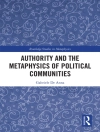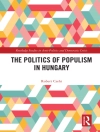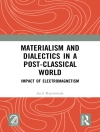A long tradition, going back to Aristotle, conceives of logic in terms of necessity and possibility: a deductive argument is correct if it is not possible for the conclusion to be false when the premises are true. A relatively unknown feature of the analytic tradition in philosophy is that, at its very inception, this venerable conception of the relation between logic and necessity and possibility – the concepts of modality – was put into question. The founders ofanalytic philosophy, Gottlob Frege and Bertrand Russell, held that these concepts are empty: there are no genuine distinctions among the necessary, the possible, and the actual. In this book, the first of two volumes, Sanford Shieh investigates the grounds of this position and its consequences for Frege’s and Russell’s conceptions of logic. The grounds lie in doctrines on truth, thought, and knowledge, as well as on the relation between mind and reality, that are central to the philosophies of Frege and Russell, and are of enduring philosophical interest. The upshot of this opposition to modality is that logic is fundamental, and, to be coherent, modal concepts would have to be reconstructed in logical terms. This rejection of modality in early analytic philosophy remains of contemporarysignificance, though the coherence of modal concepts is rarely questioned nowadays because it is generally assumed that suspicion of modality derives from logical positivism, which has not survived philosophical scrutiny. The anti-modal arguments of Frege and Russell, however, have nothing to dowith positivism and remain a challenge to the contemporary acceptance of modal notions.
Sanford Shieh
Necessity Lost [PDF ebook]
Modality and Logic in Early Analytic Philosophy, Volume 1
Necessity Lost [PDF ebook]
Modality and Logic in Early Analytic Philosophy, Volume 1
Cumpărați această carte electronică și primiți încă 1 GRATUIT!
Limba Engleză ● Format PDF ● Pagini 464 ● ISBN 9780192568809 ● Editura OUP Oxford ● Publicat 2019 ● Descărcabil 3 ori ● Valută EUR ● ID 7037531 ● Protecție împotriva copiilor Adobe DRM
Necesită un cititor de ebook capabil de DRM












